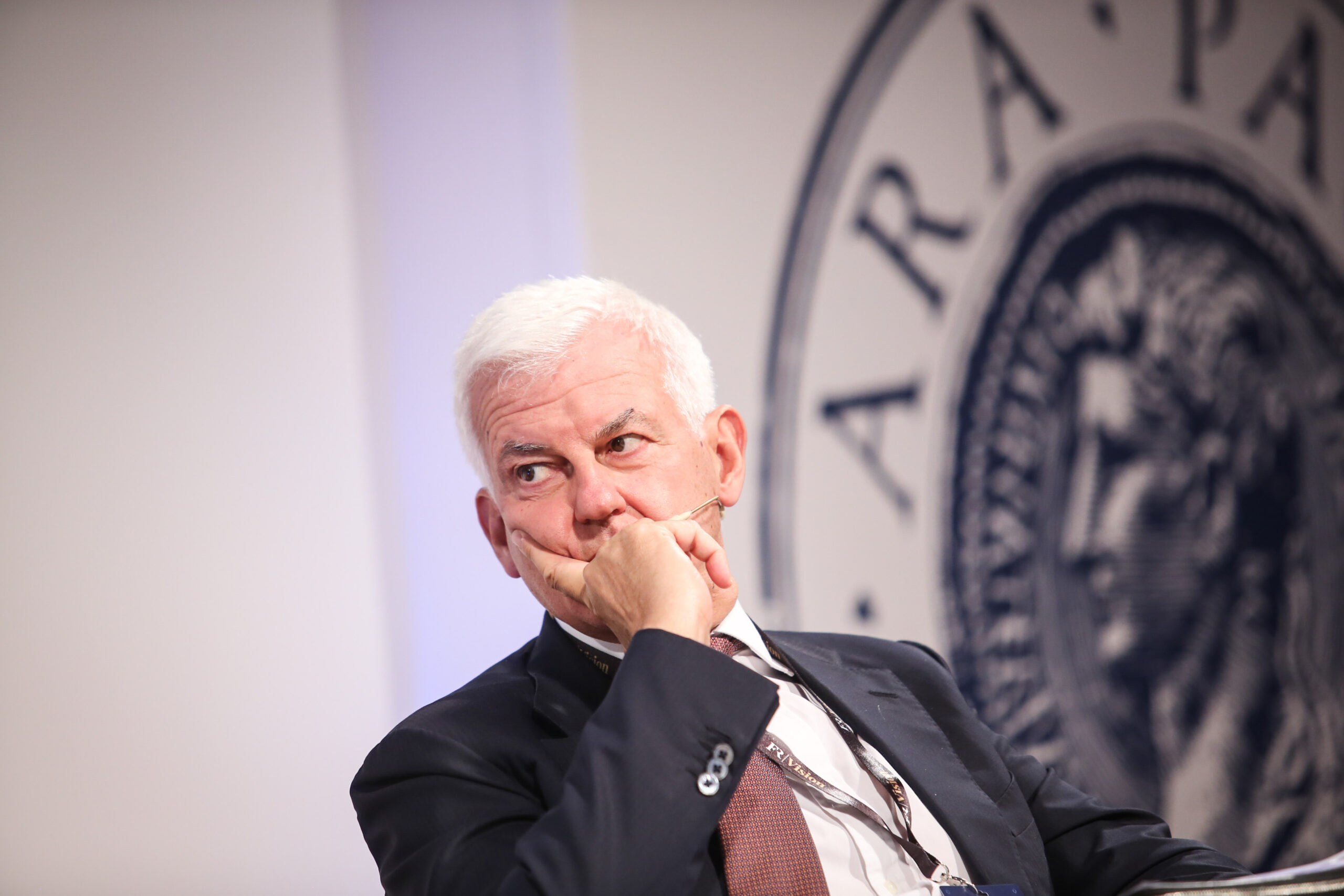From the future of transatlantic relations to decoupling from China, to the prospects of Europe’s defense sector. Here is what Alessandro Profumo, CEO of Leonardo, said in an interview with the American think tank Atlantic Council
There is a “change in the European mentality” in the field of defence.
This was stated by Alessandro Profumo, CEO of Leonardo, the aerospace and defense giant, during a recent meeting interview With the Atlantic Council think tank in Washington.
European countries have become more willing to invest in defense and security in the aftermath of the war in Ukraine. “This is very important,” said Number One in Leonardo’s group.
The importance of the defense sector in Europe has grown since the outbreak of the war in Ukraine. This change of approach was also seen at the Security Conference (MSC) in Munich, which highlighted Leonardo Number One.
Then Profumo noted the excellent cooperation with the United States in the defense market, but he hopes for a “more open” market. Regarding the Chinese challenge, Leonardo’s CEO noted that a complete “detachment” from Beijing is not possible.
All the details.
Countries have changed the approach to defense spending
Alessandro Profumo explained that if “a few years ago” defense spending faced social and political resistance, now “all European countries” are obliged to respect NATO’s goal of spending at least 2% of GDP on this sector.
In this regard, he highlighted that Europe’s different approach in this sector was confirmed, for example, by the German decision to increase defense spending to 2% of GDP.
long-term perspective need
But in addition to increasing military spending, Profumo reiterated the need to ensure a long-term perspective on the defense sector, without being distracted by short-term events.
Leonardo’s case emphasized: “We need a long-term perspective in the defense industry, and there is a need for stability.” “We need orders, because the defense industry does not produce for warehouses, including for security reasons. It is also important not to confuse urgent issues with long-term issues. Having a long-term perspective is essential. Where and how to invest, how to cooperate in new technologies, even on basis across the Atlantic,” Profumo added.
Emerging technologies from the civil sector but not only
To Matthew Kroenig, senior director of the Scowcroft Center for Strategy and Security at the Atlantic Council, who mentioned how before the Pentagon was a repository of technological innovation while more recently innovation has come mainly from the private sector (such as Silicon Valley), Alessandro Profumo emphasized: “We have to take in Keep in mind that there are some areas of technological advancement where the civilized world is more advanced, usually artificial intelligence, big data, simulations and digital twins that are quite relevant to our sector.”
“But there are threats such as hypersonic weapons that are not civilian, but we have to invest in them as an industry,” said Leonardo’s CEO.
Fragrance: Leonardo’s strong association with the United States of America
For the American market, Leonardo has three ways of cooperating in this sector, as noted by Alessandro Profumo.
The first is to be American in the American market: the example is Leonardo Dres, which is controlled by Leonardo and works with the Pentagon. Due to the doctors’ strategic role, its activities have been screened by proxy. [L’ex Finmeccanica non può dare indicazioni al management, che è americano e indipendente dal padrone italiano (ma non dal Pentagono) ricordava qualche anno fa il Sole 24 Ore]. This is very positive, there is a lot of discussion in Italy about whether it is positive or not and I am convinced that it is positive because it allows us to participate in any secret programme. ” (Here and here are insights Start Magazine On the judgment of Leonardo Doctors)
“The second way is to sell European assets to US defense systems,” Profumo explained and mentioned the MH-139A helicopter and the AW119 helicopter, the latter for emergency medical services with IFR certification issued by the US FAA. Just last summer, Leonardo and Boeing delivered the first four MH-139A Gray Wolf helicopters to the US Air Force.
“The third way of cooperation is in Italy: we have Faco di Cameri for the F-35, for which we also produce wings,” Leonardo’s CEO recalls.
In this regard, it should be noted that the facility managed by Leonardo in Cameri is the only final assembly and departure site for F-35s in Europe. It is a tri-functional site (wing production, aircraft assembly – final assembly and towing and MRO&U) where maintenance, repair, overhaul and modernization activities for F-35 aircraft are carried out in the Euro-Mediterranean region. The facility is responsible for assembling F-35A/Bs of the Italian Air Force and Italian Navy, as well as aircraft of the Dutch Air Force. Italy is a Tier 2 Partner in the F-35 Joint Strike Fighter Program with a commitment to purchase 90 F-35s (reduced in 2012 from an initial 131).
Profumo emphasized that all of this highlights that “there can be strong cooperation” with the United States.
PROFUMO (LEONARDO) hopes that US procurement will be more open to allies and partners
However, in this regard, Leonardo’s number one points to a greater openness of the US market “within a system of like-minded allies and partners”, bearing in mind the dangers of excessive protectionism.
Chinese challenge
Finally, regarding the challenge facing China and the possibility of the West decoupling its economy from that of Beijing, Leonardo Number One explained that “complete detachment from China is not possible. We have to deal with selective decoupling.” “It is important in any situation to diversify the sources of suppliers to ensure Stay, no matter what.”
Newsletter Subscription
Subscribe to our mailing list to receive our newsletter

“Prone to fits of apathy. Introvert. Award-winning internet evangelist. Extreme beer expert.”









